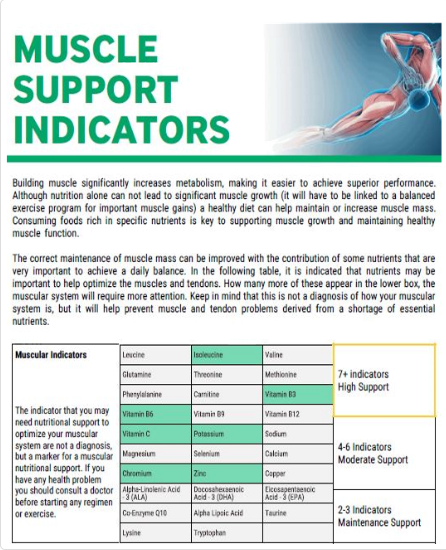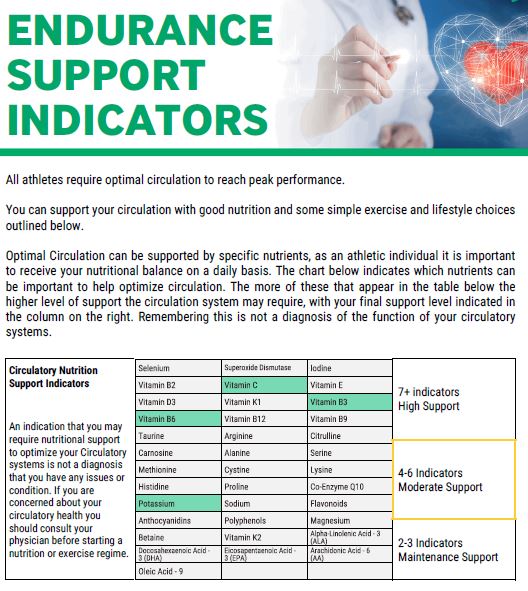A DEEPER LOOK AT EPIGENETICS
Epigenetics is the science showing that we are not victims of our genetic inheritance. It means "above" or "on top of" genetics, focusing on how environmental and behavioral factors influence genetic expression without changing the DNA sequence. This involves chemical changes that can turn genes on or off, affecting how cells interpret genetic information. These signals come from the air we breathe, the food we eat, the water we drink, the sleep we miss, the electromagnetic environment, our arguments, and the 50,000+ thoughts we have daily. This concept is crucial in holistic health, highlighting how lifestyle choices impact overall well-being. Up to 98% of gene expression—our physical, mental, and emotional state—is controlled by the ENVIRONMENT.
By understanding this, personalized health plans can be created. This allows for a tailored approach that aligns with one’s unique genetic makeup. Moreover, the preventative aspect of epigenetics helps reduce disease risks and enhance overall wellness. Lifestyle choices can also affect future generations' genetic expression, emphasizing the importance of maintaining a healthy lifestyle for long-term, family health.
From a holistic perspective, epigenetics underscores the interconnectedness of mind, body, and environment. By integrating epigenetic principles, holistic health practitioners, like myself can guide individuals in making informed lifestyle choices that support optimal gene expression. This includes nutritional guidance, stress management, detoxification, and regular exercise to enhance current health and promote long-term vitality.
Epigenetic “mapping” is a digital scanning process involving the measurement of frequencies emitted from four hair follicles. Using Cell Wellbeing's S-Drive Scanner, this process captures over 800 indicators which can point to the body’s biological stressors. The technology is based on prevention rather than diagnosis as it reflects the changing epigenetic environment at the quantum biological level.
why THE HAIR FOLLICLE is AN Epigenetic Marker
The follicle contains a lot of nutritional and environmental epigenetic secrets; are you ready to discover them?
The human body is made of trillions of cells that communicate with each other as well as with the entire system. Hair is part of the integumentary system, which develops from the ectoderm and shares the same embryological origin as the nervous system. As a result, hair has similar sensory characteristics to neurons. The root of the hair is the only living part. It receives nutrients and information from the blood vessels through the papilla. The hair and its root act like an antenna, constantly detecting signals from the environment. This sensing ability extends to the arrector pili muscle, a small muscle attached to the hair follicle, which responds to changes in temperature, pressure, vibration, and frequencies in the surrounding area. The arrector pili muscle can cause hair to stand on end in response to fear, and it relaxes when the body is calm. It also reacts to changes in body temperature by expanding or contracting. This muscle, along with the hair root, serves as an important environmental sensor and stores important epigenetic information.
What people are saying about Restored:

"I always thought having a coach was just a waist of money but after a friend recommended it for my business I gave it a shot and WOW even just the discovery call gave me actionable advice that helped me see immediate results!"
• Jane Smith | Brooklyn
Epigenetics is Empowered Wellness
Epigenetics is like an iceberg. The DNA and Genetics are what you see on the surface. The epigenetic environmental influences are larger, yet unseen by the human eye.
Humans are no longer prisoners of their DNA. Through the science of epigenetics, you can take control of your well-being. A personalized epigenetic report helps you understand how to achieve optimal physical, mental, and emotional health. The foods you eat, the nutrients you absorb, and environmental toxins all impact your health. Poor diets and chemicals can affect your gut and intestinal tract, while invisible electromagnetic waves in modern life can further influence your wellness.
Our detailed epigenetic report maps these stressors, providing over 30 pages of insights on more than 800 nutritional and environmental markers. It covers crucial areas like environmental toxins, electromagnetic impacts, diet, lifestyle, and food stressors. Additionally, the report offers a 90-day nutritional food plan and personalized advice to help you optimize your well-being. This comprehensive analysis is based on just four hair strands and their roots, giving you vital information on vitamins, minerals, amino acids, fatty acids, antioxidants, and potential environmental effects.
With this report, you can achieve optimal performance and well-being, gain insights into fertility, and enhance muscle recovery and endurance if you're a sports professional. Epigenetic Hair Mapping technology benefits all age groups, including young children.
Epigenetics & our environment
The unprecedented modernization, which has taken place over the last three decades has brought with it a massive increase in environmental pollutants. These pollutants have impacted our daily lives.
The unprecedented modernization, which has taken place over the last three decades has brought with it a massive increase in environmental pollutants. These pollutants have impacted our daily lives. One of the biggest impacts has been the stress caused to the GI track & can bring about symptoms associated with diabetes, pancreatitis, hepatitis, Irritable bowel syndrome (IBS), and inflammatory bowel disease (IBD).
The gut provides most of our cellular energies and play a major role in our immune system.The function of these systems is equally important to our memory, as they influence the brains performance. Neurotransmitters are also produced in the gut, which impact hormones, that regulate the brains demand for apatite and also stimulate feelings of hunger or being full. When toxic pollutants enter the gut, dysfunction can occur. The gut support page within the wellness report, indicates which nutrients can help optimize gut support.
Epigenetics & nutrition
There's a common saying, "You are what we eat," but this isn't entirely accurate. In reality, you are what you absorb.
We are all unique individuals, and the nutrition that sustains us is essential, yet it is often taken for granted. Any food that isn't properly absorbed can become toxic waste, which our bodies then need to eliminate.
Our gut and intestinal tracts play a crucial role in our overall well-being. The absence of a single nutrient or the consumption of a food we can't tolerate can significantly impact our physical and mental health. Additionally, we all have different environmental stressors that affect our aging process, weight, and body shape. Balancing our systems with the right nutritional support, guided by epigenetics, can help optimize our lives.
Many health issues, such as memory loss, mental health conditions (like OCD, bipolar disorder, anxiety, depression, and stress), as well as aging and obesity, have been linked to improper nutrition. A key factor in these issues is gut flora, which can be compromised by factors like electro-sensitivity, chemicals, mold, and radiation. Without a healthy balance of gut flora (beneficial bacteria like prebiotics and probiotics), our digestive system can't function correctly. Recent studies have shown that many Americans have poor gut flora, which is concerning because this is essential for producing neurotransmitters like dopamine and tryptophan, vital for brain function.
While a hair analysis report is not diagnostic, it can highlight areas that may affect our gut health, aging, weight, and shape. The report also suggests specific foods to avoid for 30, 60, or 90 days, which could include some of our favorite foods that might be causing adverse reactions. By understanding and addressing these factors, we can take proactive steps to improve our health and well-being.
Epigenetics & athletic performance

In the athletic training Report, the nutrients are indicated that may be important to help optimize the muscles and tendons in that unique client. Keep in mind that this is not a diagnosis of how your muscular system is, but it will help prevent muscle and tendon problems derived from a shortage of essential nutrients.

This report is relevant for athletes, particularly for their endurance and muscle recovery. These two areas are essential for performance enhancement and are possible through natural nutrition, which provides most of our cellular energies. Assisting athletes to optimize their sports performance via nutritional diets and life style changes, reduces the risk of underperformance or cramping and provides long term positive results.
Athletes are accustomed to technologies and methods used to enhance human performance. Epigenetic reports use bioreasonance technology to assist in optimization of performance. The 30+ page report, shows primary indicators for Endurance support and Muscle recovery which are of great value to our athletes.
Epigenetic mapping is prevention over diagnosis
Epigenetic mapping can unlock new wellness and performance possibilities by freeing you from genetic limitations.
Epigenetics is the study of how our genes are activated or deactivated throughout our lives. This process can be influenced by various environmental factors.
An epigenetic mapping report provides insights into these influences, highlighting potential food intolerances and nutrient deficiencies. It identifies imbalances in your system and suggests a personalized 90-day food plan to help optimize your well-being. While the report isn't diagnostic, it's designed as a preventive tool, helping you maintain balance by adapting to ever-changing environmental factors.
Since everyone's body responds differently, some people may need higher or lower levels of certain nutrients. An epigenetic mapping report can provide personalized guidance tailored to your unique needs. It is recommended to take this assessment every 90 days to ensure your body remains in balance.
Signs of
happy genes
Consistent energy levels throughout the day without frequent fatigue.
Good mental health, stable mood, positive outlook, and effective stress management.
Strong immune system and recovers quickly from illnesses.
Healthy skin, free from frequent breakouts or rashes.
Balanced weight without extreme dieting or excessive exercise.
Regular digestive patterns without frequent issues like bloating or constipation.
Restful sleep suggest balanced circadian rhythms and healthy melatonin production.
Sharp cognitive function, demonstrated by good memory, focus, and cognitive clarity.
Healthy aging and emotional stability.
dirty genes
low energy levels and frequent fatigue.
Poor mental health, mood swings, frequent irritability, emotional instability, anxiety, depression, and difficulty managing stress.
Weak immune system, frequently sick and takes a long time to recover.
Frequent breakouts, rashes, or other skin issues, shows ineffective detoxification processes.
Difficulty maintaining a balanced weight, despite diet and exercise efforts, points to a sluggish metabolism and hormonal imbalances.
Digestive issues such as bloating, constipation, diarrhea, or discomfort.
Irregular or disrupted sleep patterns.
Cognitive issues, including poor memory, lack of focus, and brain fog.
Premature signs of aging.

Referenced: Cell Wellbeing. (n.d.). Retrieved from https://cell-wellbeing.com/
